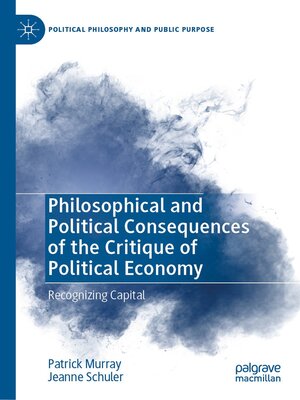Philosophical and Political Consequences of the Critique of Political Economy
ebook ∣ Recognizing Capital · Political Philosophy and Public Purpose
By Patrick Murray

Sign up to save your library
With an OverDrive account, you can save your favorite libraries for at-a-glance information about availability. Find out more about OverDrive accounts.
Find this title in Libby, the library reading app by OverDrive.



Search for a digital library with this title
Title found at these libraries:
| Library Name | Distance |
|---|---|
| Loading... |
This book extends the approach that Murray and Schuler develop in their companion volume, False Moves in Philosophy and Social Theory: Losing Public Purpose. The chapters form a connected inquiry into consequences of capital, a far-reaching social form, through a critique of political economy and the mindset it shares with much modern philosophy and social theory. The authors call this bifurcating mentality factoring philosophy. Factoring philosophy mistakes the distinguishable for the separable. It splits the subjective and objective, form and content, and it takes the object of social theory to be an impossible economy-in-general, stripped of constitutive social forms. The critique of factoring philosophy structures the collection, which makes a wide-ranging contribution to the research field of the critique of political economy as critical social theory. Ultimately, this book solidifies Murray and Schuler's impact on the study of political economy, political philosophy, modern philosophy, Hegel, Marx, and critical theory.







